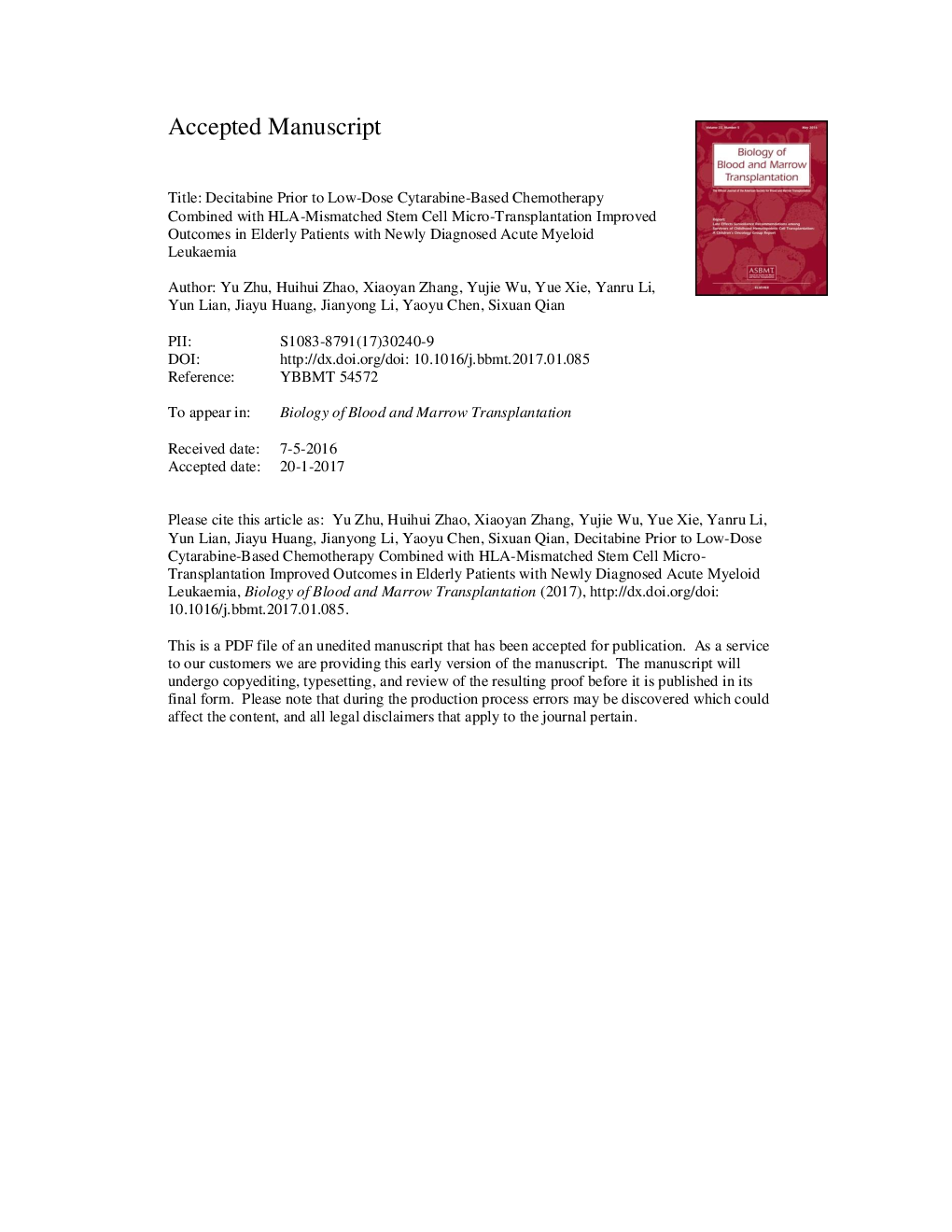| Article ID | Journal | Published Year | Pages | File Type |
|---|---|---|---|---|
| 5524091 | Biology of Blood and Marrow Transplantation | 2017 | 19 Pages |
Abstract
The optimal treatment for elderly patients with acute myeloid leukemia (AML) remains a great challenge. Establishing a more feasible, acceptable, accessible and safe treatment strategy for elderly patients is urgently needed. We conducted a prospective study of 23 elderly patients (median age, 68 years; range, 60 to 87 years) with newly diagnosed AML to evaluate the efficacy and toxicity of decitabine plus granulocyte colony-stimulating factor priming, low-dose aclarubicin, and cytarabine (DCAG) chemotherapy combined with HLA-mismatched stem cell microtransplantation (SC-MST) without graft-versus-host disease (GVHD) prophylaxis. After the first cycle, the overall response and the complete remission (CR) rates were 86.4% and 81.8%, respectively. CR was achieved in 90.9% of the normal karyotype group and in 80.0% of patients with unfavorable karyotypes at baseline. The median overall survival (OS) and disease-free survival rates were 17 and 13 months, respectively, with a 2-year OS of 34.8%. The median OS of the patients who received â¥3 cycles of SC-MST was significantly longer than those who received only 1 or 2 cycles of treatment. The regimen was well tolerated with a 4-week mortality of 4.3%, and no GVHD was observed. The most common adverse events were hematologic toxicities. Our data suggest that the innovative combination of DCAG with SC-MST may optimize the clinical strategy for elderly patients with newly diagnosed AML.
Related Topics
Life Sciences
Biochemistry, Genetics and Molecular Biology
Cancer Research
Authors
Yu Zhu, Huihui Zhao, Xiaoyan Zhang, Yujie Wu, Yue Xie, Yanru Li, Yun Lian, Jiayu Huang, Jianyong Li, Yaoyu Chen, Sixuan Qian,
